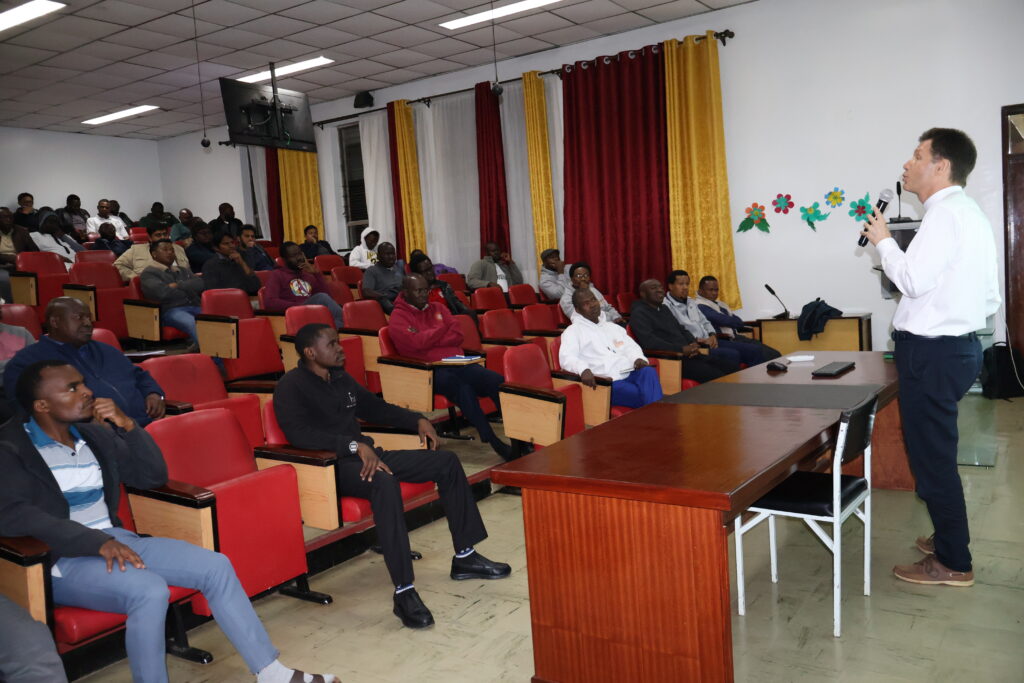
“For me, love is being present to people. As Jesuits, we do things – our ministries – to be present, to engage.”
That is the rationale of Belgian Jesuit Fr. Jean-Marc Balhan’s ministry of presence in Turkey for the last 25 years. This time is almost identical to the latest iteration of the Society of Jesus’ engagement with the country.
The early Society, in its founding documents and practice, had indicated a readiness to go anywhere at the service of Christ’s Church “among the Turks” (Formula of the Institute, 1539). True to their word, the Jesuits embarked on their first mission to the then Ottoman Empire in 1583, but succumbed to the Plague. Another mission followed in 1603 until the Suppression in 1773. After the Restoration, missions were resumed not only to Turkey but also to the Middle East. A Jesuit presence was maintained in Istanbul until 1980. Academic ties were set up with the (Islamic) theology faculty of Ankara University in 1985. In 2000, a new community was set up in Ankara, Fr. Balhan arriving in 2001.
Addressing the Jesuit Community of Hekima University College on the evening of 25 August 2025, Fr Jean-Marc Balhan’s enthusiasm for his ministry and love for Turkey was apparent – and quite ‘contagious’. Although it was out of school hours, we sat fascinated as he regaled us not only with the history of Jesuit involvement in Turkey, his own experiences, but also the history of Turkey itself.
Modern Turkey has evolved over millennia. The oldest human structures, Gobekli Tepe (dated to 10,000 BCE), are in Turkey. Within it, we find the source of the Tigris and Euphrates Rivers, ancient cities that date back to biblical times, the Greek and Roman Empires, and it is the birthplace of St. Paul, as well as most of the earliest Christian communities and the Cappadocian Fathers.
“While Palestine was the Holy Land, the home of Christ, we can quite justifiably claim that the Holy Land of the Church is Asia Minor or Anatolia,” he commented.
Today, he continued, Turkey’s Christian population (all denominations) is 0.15%. History has caused this: the Eastern Roman Empire, also known as Byzantium, lasted until 1453. The new Muslim rulers, whose territory stretched at its strongest point from parts of Central Europe across the Middle East and North Africa, constituted the Ottoman Empire, which lasted, in different forms, until the end of World War I. In 1923 a republic of Turkey was established under Kemal Atatürk, who modernised the country and introduced a secular state.
Turkey today is, as it always has been, a country between Europe, Asia, and Africa. Part of it is technically in Europe, the other part in Asia. Following Atatürk’s vision, Turkey has reached out to Europe, joining NATO after 1945 and seeking (unsuccessfully so far) to join the European Union. To its north, Russia is its “best enemy, most respected enemy” – but political tension does not undermine Russia’s importance to Turkey as a trading partner. Turkey has also reached out to the states of the former Soviet Central Asia, often serving as a cultural and economic bridge between them and the rest of Europe. It also has significant (and in fact increasing) economic, social, and educational ties with Africa.
And what of Fr. Balhan’s own work? Over the past twenty-five years, he notes how it has evolved, from more formal to informal interfaith dialogue. He and his community in Ankara run a small parish, while working with similar communities in other cities in the region, including foreign students studying at Turkish universities who are Christian. (There are about 350,000 foreign students at Turkish universities; some 60,000 are Africans.) The parish also offers an adult faith instruction course for those exploring the Catholic faith, with some participants considering conversion.
When asked how this is perceived among the Turks, indeed how far religious freedom exists in the country, he observed, “Turkey is a secular state with a state religion. To be a Turk is to be a Muslim. But conversion is possible, tolerated”, while Muslim families of such converts, depending on personal levels of devoutness, show different levels of acceptance of such conversions.
On the whole, he noted, Christianity is tolerated. Issues occasionally arise when some (usually Evangelical) pastors engage in aggressive proselytism. Good Vatican diplomatic relations with the Republic is a plus for Catholics in Turkey. Freedom to practise the faith is protected.
If anything, most Turks find Catholicism curious. While not seeking conversion, they want to know more about the Church. Apart from the parish’s actual activities, the Jesuits engage in regular conversations with Muslims. Although there is no longer a permanent Jesuit presence at Ankara University, Jesuit scholars working in Christian-Muslim dialogue still visit the institution regularly.
“Our work is a mission of presence primarily,” Fr. Barhan observed. This requires a certain frame of mind: a readiness to work with a permanent parish while being open to whatever opportunities for interfaith encounter might arise. Such encounters include folks dropping into the church to ask a few questions about Christianity, occasional requests for counselling, or even requests for material help in an emergency. The parish is open each day.
One thing that happens quite often, he noticed with amusement, is that many young people visit the parish church to take selfies of themselves with the statue of the Blessed Virgin Mary!
By Rev. Dr. Anthony Egan, SJ, Director HUC Communications Department
